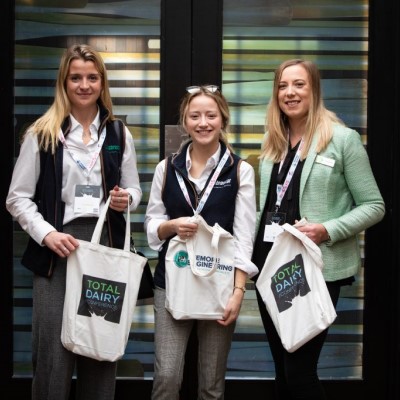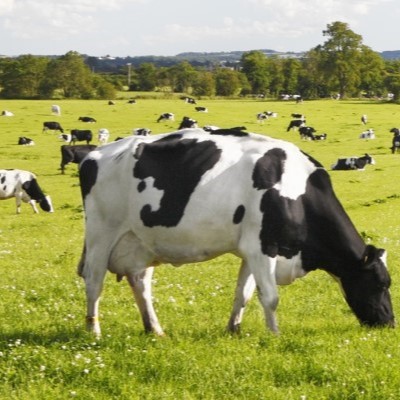CIEL | Project: Dancing with Daffodils
Genetics | Reproduction | Behaviour | Nutrition | Health & Welfare | Productivity | Food Integrity | Environmental Impact
Funding call: Farming Futures R&D Fund: Climate smart farming – Full stage
Lead partner: Rumenco
Consortium Partners: Agroceutical Products, Analox, Bangor University, Beneve, Bioextractions Wales, CIEL, Grampian Growers, SRUC, Wynnstay
Overview
Dancing with Daffodils is a 48-month feasibility research project aimed at transforming the efficiency and sustainability of ruminant farming. The project is based on greater use of locally available plant-based compounds called alkaloids, which can be extracted from daffodils. As daffodils are grown widely throughout the UK, production and extraction these compounds can be local, sustainable and resilient.
The multi-dimensional project aims to
- Reduce the carbon footprint of the ruminant livestock sector by developing and validating a novel technology geared to boost feed protein efficiency whilst reducing methane emissions
- Improve productivity and resilience in the dairy sector by reducing the need to feed high-cost imported feed materials
- Establish a UK-based supply chain to support the diversification of UK agriculture and boost the rural economy.
Scope and impact
At the heart of the consortium’s efforts lies the development of a unique and innovative feed additive using a specific alkaloid extracted from daffodils. The product, based on years of meticulous research and cutting-edge technology, promises to revolutionise the industry by enabling farmers to achieve exceptional results in methane reduction and protein utilisation, fostering a more sustainable and economically viable farming system. Preliminary data estimates that by using a specific alkaloid from daffodils, direct methane emissions from ruminants can be significantly reduced whilst simultaneously improving the efficiency of feed protein utilisation by 50%. Improving feed protein utilisation will lead to increased productivity of the ruminant sector whilst reducing the production of nitrous oxide, another potent greenhouse gas. This would subsequently reduce the requirement for high-protein imported feeds such as soyabean meal, improving the sustainability of British farming.
In order to support the roll out of this feed additive, the consortium is spearheading the cultivation of daffodils as a new cash crop, aimed at supporting farm diversification and enhancing agricultural sustainability. Daffodils, with their low-input requirements and environmental adaptability, offer a compelling opportunity for farmers to explore alternative revenue streams while contributing to biodiversity and ecosystem resilience. By encouraging the adoption of daffodil cultivation alongside traditional farming practices, the consortium aims to empower farmers with diverse income sources, strengthen the resilience of the agricultural sector, and create a more sustainable and economically vibrant rural landscape.
The funding is also being used to develop a precision on-farm gas analyser to monitor emissions accurately. This cutting-edge technology will provide real-time data on the levels of: methane, hydrogen, carbon dioxide and ammonia produced by each of the individual ruminants, identified with an electronic identification tag (EIG).
The data collected offers farmers full traceability and the ability to implement targeted measures to reduce emissions and improve herd management. By leveraging advanced analytics and remote monitoring capabilities with cloud storage, the gas analyser will facilitate data-driven decision-making, further enhancing the sustainability and efficiency of ruminant farming practices. Preliminary data shows the alkaloid will significantly reduce methane production in the rumen and has the added benefit of increasing the efficiency of feed protein utilisation by 50%, reducing the need for expensive, high protein imported feed materials such as soybean meal whilst also reducing the nitrous oxide emissions, another potent greenhouse gas.
For more information, please contact Annie Williams via the enquiry form.
If you have a query about this, or any of our projects please get in touch below. To ensure your enquiry reaches the the correct team member please state who you are trying to contact.







